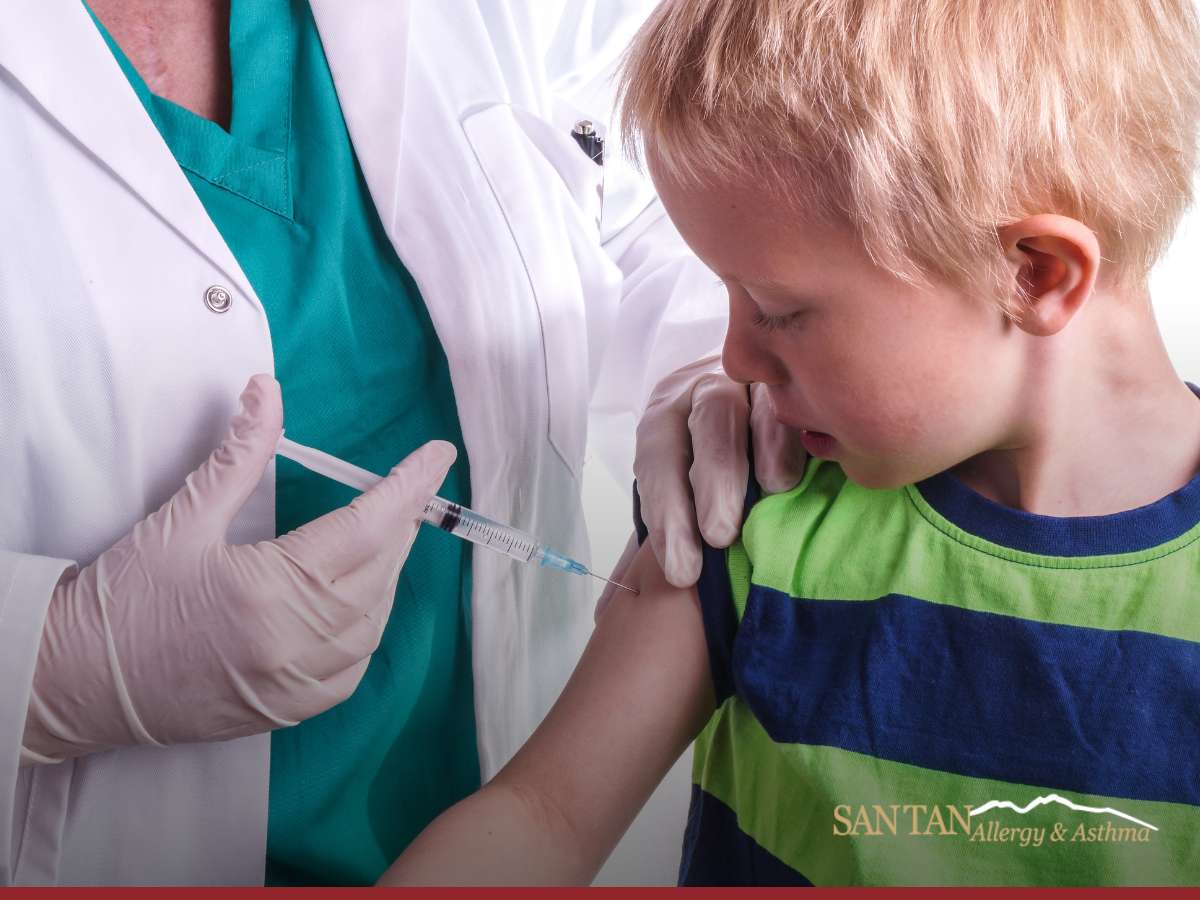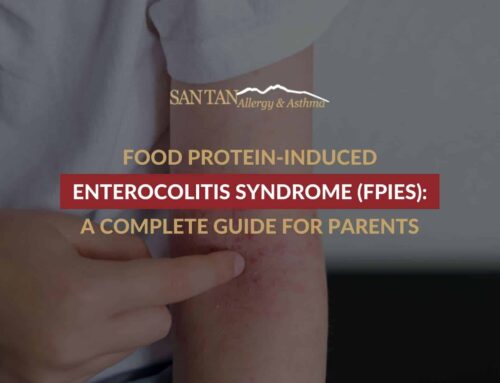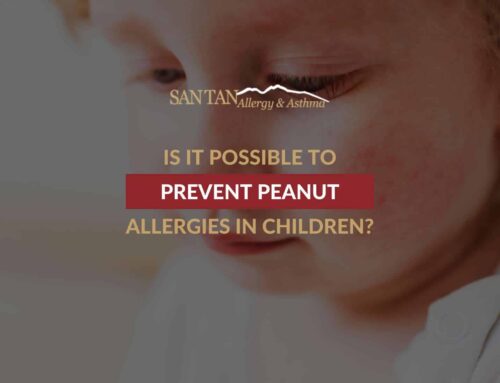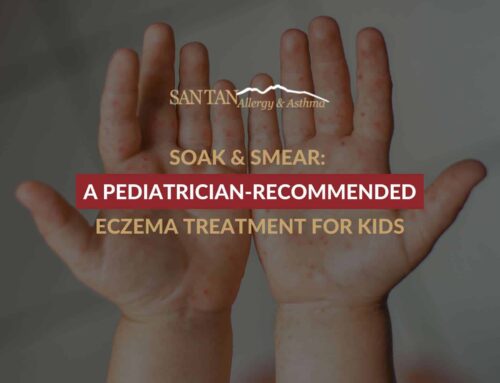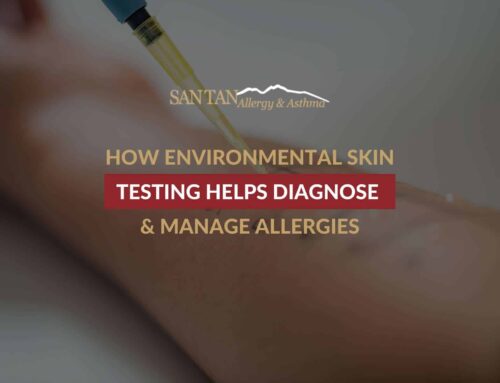Enhancing Pediatric Allergy Treatment: The Role Of Immunotherapy
In recent years, immunotherapy has emerged as a promising avenue for managing allergies in both adults and children. However, the question of its safety, especially when applied to pediatric patients, has been a subject of careful consideration.
Are the potential benefits worth the risk? To delve into this question, we’ll explore the intricacies of immunotherapy, weighing its pros and cons in the context of children with allergies.
Deciphering Immunotherapy: A Strategic Approach To Pediatric Allergies
Immunotherapy, commonly known as allergy shots, is a treatment approach designed to desensitize the immune system to specific allergens. This therapeutic intervention is particularly relevant for individuals, including children, whose allergies are unresponsive to conventional methods. Allergists, or allergy experts, administer gradually increasing doses of allergens to patients, enabling their immune systems to build tolerance over time.
Allergies in children often manifest as immune responses, representing the body’s heightened reaction to specific triggers, commonly known as allergens. Immunotherapy emerges as a pivotal intervention, functioning akin to a vaccine, assisting the body in developing immunity towards identified allergens. In this exploration, we delve into the intricacies of immunotherapy for pediatric allergies, weighing its safety, efficacy, and potential drawbacks.
How Immunotherapy Works: Building Allergen Tolerance In Children
Immunotherapy operates by exposing the body to minimal amounts of a targeted allergen, gradually prompting the immune system to build tolerance. This incremental exposure occurs over three to six months, followed by the maintenance of tolerance through monthly administration of the highest effective and safe dosage for three to five years.
Types Of Allergies Addressed By Immunotherapy
- Allergic conjunctivitis
- Allergic rhinitis
- Asthma triggered by allergies
- Insect sting allergies
Exploring Allergy Immunotherapy Options: SCIT & SLIT For Children
Contrary to popular perception, allergy immunotherapy encompasses more than just traditional “allergy shots.” Two primary modalities are in practice:
- Subcutaneous (Injected) Immunotherapy (SCIT): Involves exposing children to increasing doses of allergens over time.
- Sublingual (Under The Tongue) Immunotherapy (SLIT): Currently FDA-approved in tablet form for specific allergies like dust mite, grass, and ragweed.
Optimal Timing For Pediatric Immunotherapy: Insights & Recommendations
Children can undergo allergy testing at any age, with research affirming the safety of immunotherapy for those under 5. However, the consensus among experts suggests commencing immunotherapy around age 5. This recommendation ensures that children can effectively communicate symptoms and tolerate the periodic injections essential for the treatment.
Criteria For Considering Immunotherapy
- Moderate to severe symptoms occurring for several months annually
- Inadequate response to current medication plans
- Intolerance to medication side effects
- Inability to avoid environmental triggers
The Merits Of Allergy Shots & Immunotherapy In Children
The outcomes of immunotherapy can vary, but when successful, the benefits are noteworthy:
- Long-lasting Symptom Relief: Many children experience relief within months, and for some, the relief persists even after concluding the treatment.
- Reduction In Medication Dependency: Immunotherapy aims to gradually eliminate or reduce reliance on allergy medications, often associated with side effects such as anxiety, sleep disturbances, and hyperactivity.
- Mitigating Asthma Risk: Given the correlation between allergies and asthma, immunotherapy appears to have a preventive effect, reducing the likelihood of asthma development in children with allergic rhinitis.
Understanding Immunotherapy’s Risks & Drawbacks
While immunotherapy offers promising results, parents should be mindful of certain aspects:
- Time Commitment: Immunotherapy demands consistent, long-term engagement, typically spanning three to five years. Initial phases may require frequent injections, eventually transitioning to monthly administrations or daily sublingual tablets.
- Possible Adverse Reactions: Introducing even trace amounts of allergens can trigger immune reactions. Adverse effects are usually localized, manifesting as redness, soreness, or hives for allergy shots, or mild symptoms like itchiness and nasal irritation for sublingual tablets.
- Research Insights: Studies indicate that over 70% of individuals undergoing immunotherapy experience localized reactions, with severity diminishing as treatment progresses.
Preparing For Your Child’s Immunotherapy: Essential Questions To Consider
Before embarking on immunotherapy for a child, several crucial questions warrant exploration:
- Insurance Coverage: Ascertain if health insurance covers the entirety of the treatment.
- Treatment Details: Understand the frequency and duration of the required treatment.
- Adverse Reaction Management: Discuss preventive measures and strategies for managing adverse reactions.
- Medication Interactions: Investigate potential interactions with existing medications or supplements your child may be taking.
- Transition From Current Medications: Seek clarity on when and how current allergy medications can be tapered or discontinued.
Making An Informed Decision: Balancing The Pros & Cons Of Pediatric Immunotherapy
Immunotherapy offers a promising avenue for children grappling with allergies, providing a potential shift from mere symptom management to a more comprehensive, long-term solution. However, the decision to pursue this treatment should be a well-informed one, considering the individual characteristics and needs of each child.
While the safety concerns are real, the benefits of immunotherapy, when administered under the guidance of experienced allergists, can outweigh the risks. It is crucial to approach this treatment option with a thorough understanding of its pros and cons, taking into account the child’s age, the specific allergens involved, and the commitment required from both the medical team and the family.
The decision to pursue immunotherapy for pediatric allergies necessitates a thorough understanding of its dynamics, potential benefits, and associated considerations. Consulting with allergists, who are experts in the field, becomes imperative for informed decision-making. As the medical landscape advances, the safety and efficacy of immunotherapy for children with allergies continue to be a subject of ongoing research and refinement.
At San Tan Allergy & Asthma, our specialized team of allergy experts is devoted to delivering thorough and empathetic care for individuals grappling with respiratory allergies. Contact us today, and let’s initiate a tailored plan designed to enhance your quality of life, offering you a sense of tranquility and well-being.

San Tan Allergy & Asthma
4915 E Baseline Rd #112
Gilbert, AZ 85234
Phone: 480-626-6600
Email: officemanager@santanallergy.com
Website: https://santanallergy.com/
